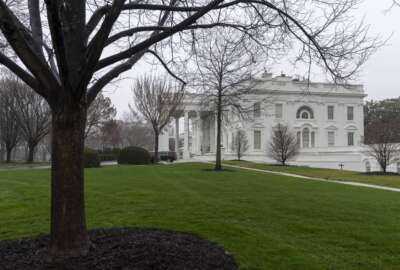Blue-collar federal pay reform heading toward rulemaking process
A proposal aims to amend the federal pay locality mapping for blue-collar feds, more closely aligning it with the General Schedule’s pay localities.
More than 15 years in the making, plans to update the federal pay system for blue-collar government employees are finally gaining some traction.
A proposal to reform the Federal Wage System (FWS) has moved into the early stages of the government’s rulemaking process, the Federal Prevailing Rate Advisory Committee (FPRAC) announced during a public meeting Thursday morning.
The proposal, if finalized, would amend the federal pay system for blue-collar government workers, more closely aligning it with the locality pay areas for the General Schedule (GS). An estimated 15,000 blue-collar feds would see their pay rates increase.
After FPRAC, a council that advises on pay for blue-collar feds, approved the proposal last December, the changes were sent to the Office of Personnel Management for review. OPM then handed off the proposal to the Office of Information and Regulatory Affairs, an arm of the Office of Management and Budget, to begin the rulemaking process.
Edward George, an American Federation of Government Employees official working at Tobyhanna Army Depot, expressed both gratitude and residual frustration around the proposal’s advancement.
“We are having a hiring problem, we do have skills gaps because of what’s going on with the way that our wages are calculated,” George said during Thursday’s FPRAC meeting. “I appreciate you taking this up once again. It’s very frustrating for our employees … It just seems like it’s [a never-ending] process. We would really like to see this fairly and equitably adjusted across the country as soon as possible.”
The proposed regulations are expected to be published to the Federal Register this October. Once published, OPM will accept comments on the regulations before making any potential revisions and finalizing the rule on FWS.
In total, FWS covers about 192,000 federal blue-collar employees working in trade, craft and laborer jobs. The federal pay system was established decades ago to try to keep federal wages aligned with “prevailing,” or market rates in localized areas.
But since fiscal 1979, many blue-collar feds have seen limits on their annual federal pay raises. And as a result, wages in 75% of FWS localities no longer align with local pay rates for similar jobs.
The idea to align the pay maps for the FWS and GS systems first came up more than 15 years ago, to try to reverse the growing disparity. FPRAC’s current proposal, though, comes from more recent calls from Congress in 2022, asking OPM to consider ways to reform the FWS locality pay map.
If implemented in its current form, FPRAC’s proposal would move about 10% of FWS employees from one wage area to another. Rearranging the FWS locality mapping would, in many cases, impact local pay rates for blue-collar feds working across the country. While about 15,000 employees would get pay increases, another 2,000 or so employees would be covered by “pay retention,” which would maintain pay rates of employees who would otherwise see a decrease to their pay.
But there is still opportunity to make adjustments to the current proposal. Once the proposed regulations are available in the Federal Register, likely later this year, stakeholders will be able to share any feedback they might have about the planned changes to FWS.
And already, there has been plenty of discussion on how to work out the details of the coming changes. When advancing the draft proposal in December 2023, most FPRAC members agreed that some type of FWS reform was necessary, but a couple members expressed disagreements over what those reforms should actually look like.
For instance, some FPRAC members raised concerns about costs and potential complications of implementing FWS map changes. Some members also said they were worried about agencies having to work within their current budgets to implement the pay adjustments, rather than receiving additional funding for them. One suggested alternative was to consider pay changes on a regional basis, rather than amending the entire pay system.
During Thursday’s FPRAC meeting, many attendees also indicated plans to write public comments on the proposed regulations coming this fall.
The public comments, AFGE’s George said, will be “more than they’ve ever seen.”
Copyright © 2024 Federal News Network. All rights reserved. This website is not intended for users located within the European Economic Area.
Drew Friedman is a workforce, pay and benefits reporter for Federal News Network.
Follow @dfriedmanWFED






